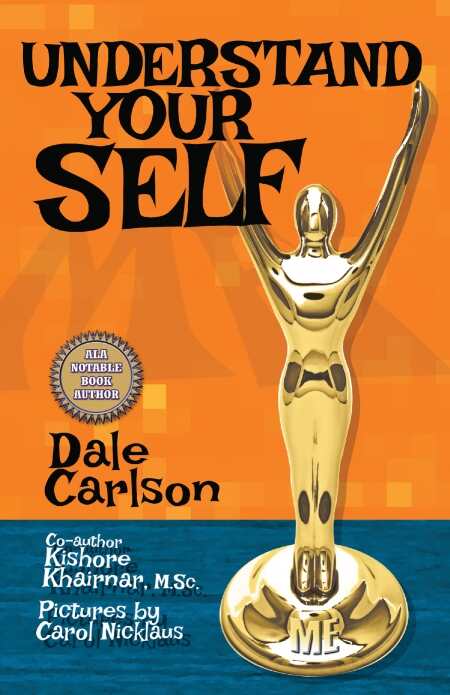Understand Your Self
- 2012 INDIES Finalist
- Finalist, Young Adult Nonfiction (Children's)
“The self is just a story in our thoughts,” declares ALA award-winning author Dale Carlson. Fortuitously, our stories are something that we have the power to change. This conviction is at the center of Understand Your Self, her latest psychology book for teens.
Carlson encourages choosing a “story”—more like a world view–evocative of Eastern religious and philosophical systems, lauding an abandonment of all selfish and reactionary thoughts and actions. In sections spanning topics from relationships to education to work and authority figures, Carlson confronts and deconstructs the topics which harry teens the most. She sympathizes with them where they are often confused, and remarks on the intelligence of the existential questions they are beginning to ask.
We’re all made of stardust, she asserts, giving a nod to scientists like Albert Einstein and Stephen Hawking for postulating a single origin for everything in the universe. As such, we’re interdependent and responsible for honoring the well-being of all else in existence.
Much of Carlson’s book is devoted to outlining exercises for perceiving the ephemerality of “I,” the curious power said illusion has over human life, and the control we can assume when we understand both. She proposes consequent actions involving primarily observation and introspection. Meditation is introduced as a means for continuing this work. Collectively, these efforts can prepare teens for growing into beings who benefit the world, rather than into adults who join the generations who have unwittingly colluded against its best interests.
Carlson makes an effort speak to teens in their own language, validating their growing dubiety when it comes to adults and authority figures, too many of whom, she confirms, are so wrapped up in the illusion of the self that they forget to act toward world betterment. Still, the merits of her arguments may be obfuscated by more provocative examples, as with a hypothetical question motivated by the apparent meaninglessness of the lives of our forebearers.
Carlson’s propositions are afforded definite credibility by the repeated parallels drawn between them and the work of Krishnamurti, but this also highlights the esoteric nature of any prospective receptive audience. These are concepts which many adults have great difficulty internalizing. While Carlson seems to view the malleability of teenage minds as a boon in this respect, her young audience may find her radically countercultural arguments to be a source of further confusion, rather than of relief. Unusual maturity should be a considered a prerequisite for teens tackling this otherwise sage and conscientious project.
Reviewed by
Michelle Anne Schingler
Disclosure: This article is not an endorsement, but a review. The publisher of this book provided free copies of the book and paid a small fee to have their book reviewed by a professional reviewer. Foreword Reviews and Clarion Reviews make no guarantee that the publisher will receive a positive review. Foreword Magazine, Inc. is disclosing this in accordance with the Federal Trade Commission’s 16 CFR, Part 255.

